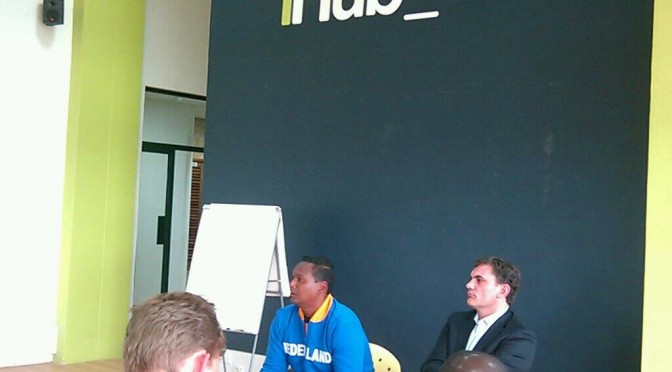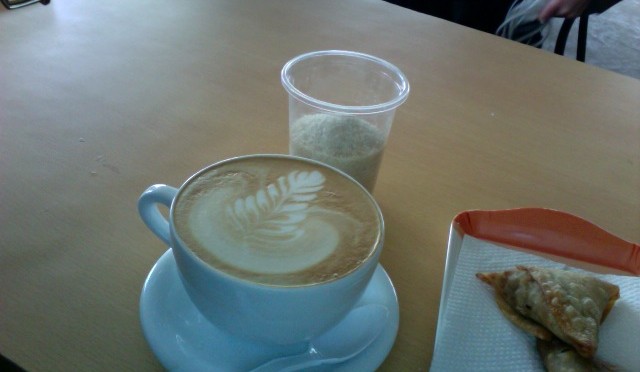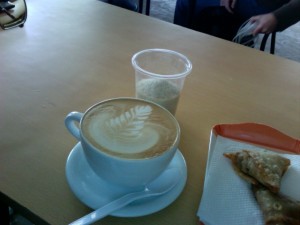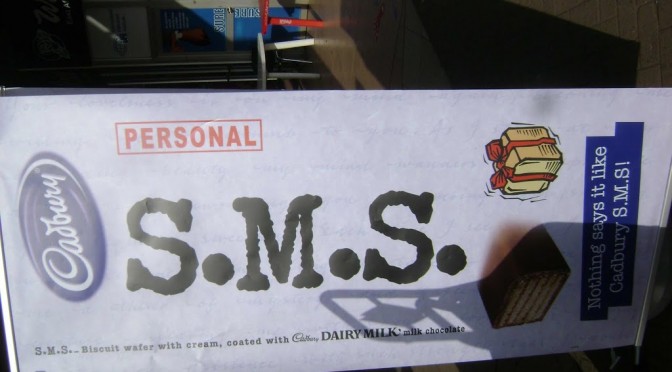A talk on venture capital (VC) was given by Vincent Kouwenhoven and Brian Hirman of the eVA (eVentures Africa Fund BV) at the iHub in Nairobi. They both have about 15 years experience in VC and enumerated the criteria the fund uses for investments including that target companies in Africa should have profitable track records (not start-up’s) to qualify for VC investments of between 25,000 and 250,000 Euros (~Kshs 2.5 million to Kshs 25 million).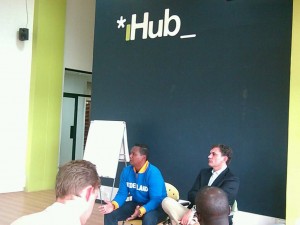
The fund was launched in January 2010, and in the ½ year they have invested in 5-6 companies. The founders are seasoned travelers in Africa and their interest was piqued by observations they made over the last three years including;
1. Chinese investment interest in Ghana and Kenya
2. Arrival of fibre optic cables
3. More African returnees returning from the Diaspora who were setting up their own companies (it’s a good sign). They have been exposed to Kenya for many years and sense that entreprenual spirit in Nairobi is very good as are competence levels in high technology sectors.
– All their investment are active in the digital scene – whether mobile, internet, communication platforms – and include a leading internet company in Ghana, while in Kenya, they have Jumuika, Ratio Magazine, and the latest deal signed today is for an investment in Verviant (w/ Liko Agosta better known for Pesapal)
– They invest growth funding in companies and try and cultivate a healthy portfolio, unlike other VC’s who make several weak investments in the hope that one or two will payoff and offset the failures. Their investment clearly spells out the use of proceeds/funds which can vary, but ideally should not be for increased salaries or other debt repayment (unless to retire expensive debt). They also mentioned that their investment criteria is a guide, not cast in stone (e.g. Jumuika was a startup)
– They get involved in the operations of the company; whether marketing, technology, financial, entrepreneurship, HR policies. They act as a sounding board and advise owners (use skype a lot) on how to scale up e.g. when they get traction, how to set up customer care capacity
– They seek out committed entrepreneurs – not part timers, or people with one good idea they have not developed, or people with a dozen ideas (not focused). They want to invest in people with the gut and belief to start a business and are willing to eat bread & water to hack it put (not one who relies luck) – and who also enjoy what they are doing. Other “no no’s” include people who ask for too much money that dilutes their equity (EVA want founders to retain at least 51% at all timea), or which enables them to run the business without risk for two years (i.e. with the VC’s funding)
– On exit strategy their preferred rout is a buyout of the company within 3 to 7 years by multi-national or larger company. In cases where an investor may not be ready to sell, the VC can sell their stake to another VC.
